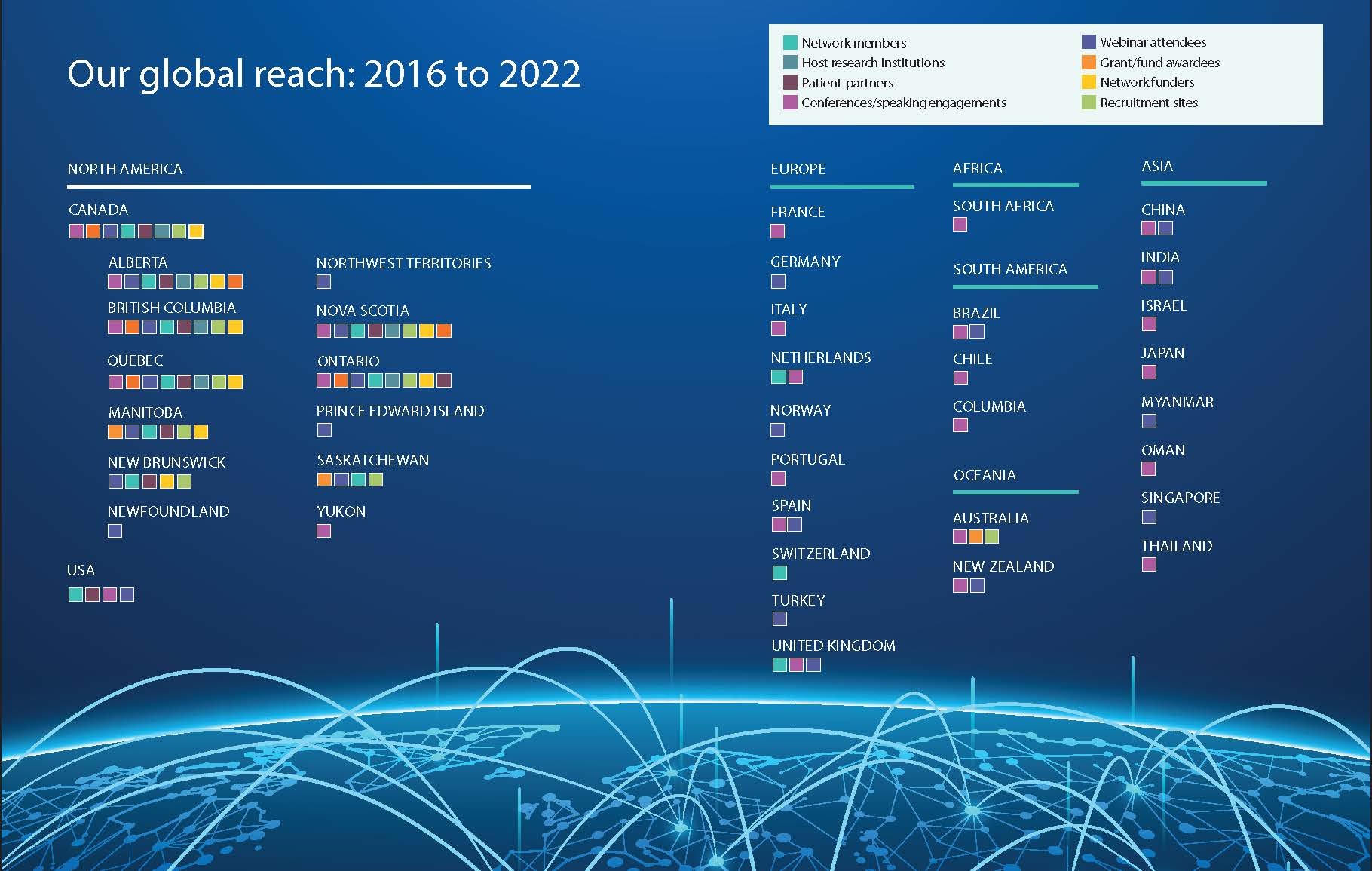
ABOUT
The CHILD-BRIGHT Network is a pan-Canadian patient-oriented research network based at the Research Institute of the McGill University Health Centre. Created in 2016, it works to create brighter futures for children and youth with brain-based developmental disabilities and their families. It is funded by the Canadian Institutes of Health Research (CIHR) under Canada’s Strategy for Patient-Oriented Research (SPOR) in partnership with 28 funding partners from across the country in Phase 1 and 15 funding partners in Phase 2. Our national network includes 350 researchers, clinicians, decision-makers, youth, and parents.
CHILD-BRIGHT’s extensive research program was developed based on research priorities identified by youth, parents, and other knowledge users such as frontline clinicians and health care administrators. From 2016 to 2022, CHILD-BRIGHT carried out 13 multi-centre projects focusing on three themes: early intervention to promote brain and child development; strategies to support the mental health of children and families; and service delivery redesign to address gaps in service. From 2022 to 2026, CHILD-BRIGHT will move its patient-oriented research into action through insight and methods grounded in implementation science and knowledge mobilization, and by embedding the principles of equity, diversity, inclusion, decolonization and Indigenization.
Our Mission
Our mission is to foster a movement for change: moving patients into research teams, moving research into improved practice and policy, and moving children and families forward towards brighter futures.
Our Population
The CHILD-BRIGHT Network works to make the present and the future brighter for infants, children, and youth with lifelong brain-based developmental disabilities and their families, including individuals with diagnoses of brain-based disorders (e.g. autism spectrum disorder, attention deficit hyperactivity disorder, fetal alcohol spectrum disorder, cerebral palsy, intellectual or learning disabilities), and individuals at high risk for a brain-based disability (e.g. preterm birth, congenital heart disease, genetic anomaly).
Our Reach
We aim for our work to reach and involve families across the country, and the world! Consult our map to see the geographic reach of our membership, activities, and impact.
Our Membership
To successfully accomplish our mandate under Canada's Strategy for Patient-Oriented Research (SPOR), we work in active partnership with a wide range of people including patients, parents, youth, researchers, health professionals and decision-makers in research so as to build a sustainable and accessible health care system that optimizes the health of children with brain-based developmental disabilities, and their families.

OUR RESPECT OF THE LAND ON WHICH WE WORK
We recognize that CHILD-BRIGHT's work takes place on many traditional Indigenous territories across Canada. Our head office is located on the traditional unceded territory of the Kanien’kehà:ka Peoples, a place which has long served as a site of meeting and exchange among First Nations.
The legacy of our colonial history continues to have ramifications on the health and wellbeing of children across the country. We are committed to doing our part in rooting out colonialism and systemic racism in our pediatric health systems. We understand that there is much for us to do in order to make strides towards this goal and the acknowledgement of the traditional on which our work takes place is only the first step in a much larger process. We recognize the importance of doing our part to address these harms so we can ensure that all children with brain-based developmental disabilities, including First Nations, Métis, and Inuit children, receive the care and supports they need to live rich and full lives.





